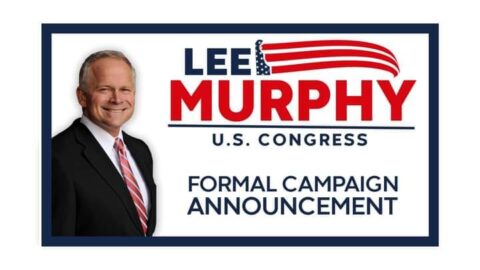So the much-ballyhooed 2022 school board elections are over, and the winners will soon get to place their stamp on their respective districts for the next four years (in most cases.) More to the point of this post, though, it was about this time last year that I wrote the following:
It was a great idea for Patriots for Delaware to take that first step (of endorsing school board candidates), and now they have some inkling what to expect. Hopefully come May of next year, they will be celebrating some initial victories on the road back to sanity for the state of Delaware.
“Disheartening numbers,” May 13, 2021.
As it turned out, the Patriots for Delaware did get a couple victories – but also a couple stinging rebuffs as well.
This cycle was interesting in that the state GOP also got involved by noting which school board candidates were registered Republicans, so to me you had three groups of hopefuls worth watching:
- Those candidates endorsed by Patriots for Delaware – a total of 11.
- Those candidates listed as Republican. In contested elections, there were also a total of 11, but there wasn’t as much overlap as one might think.
- Incumbent candidates. Here in Sussex County there was only one in the five contested school board elections. By my count statewide there were nine, which is surprising given the number of seats available.
While the P4D batted a collective .000 in contested elections last year (their one winner won by acclamation) they improved to 2-for-11 this year by winning contests in Delmar and Milford. However, at the same time they lost two incumbent endorsed candidates in the Colonial and Capital school districts as they were among those seeking re-election who fell short. Basically they lost a little ground in terms of directly endorsed candidates as the winners won in smaller districts.
The Republicans, on the other hand, did a shade better in going 3-for-11, with the caveat that three of their losses came in seeking the same seat in the Smyrna district. (Perhaps they did a good job of splitting the vote for the incumbent, who won.) Out of their two incumbent GOP stalwarts running, the one who had the P4D endorsement lost (Leo Magee in the Colonial district) while the other one who wasn’t so endorsed won (Linda Hitchens, here in Laurel.)
The incumbents were the story to me. Particularly in Sussex County, there were a number of incumbents who chose not to run again – Hitchens was the only one in the five contested Sussex elections. Out of nine incumbents who ran around the state, though, five of them lost at the ballot box, so there was a lot of change made in that respect. Two of the five holdovers who lost, as I noted, got the Patriots for Delaware endorsement so that may have been a step backward, but one of the Republicans knocked off an incumbent in Smyrna so their representation stayed fairly even. (Along with Hitchens, another Republican retained her seat in the Woodbridge district over a P4D-endorsed candidate.)
So where do we go from here?
The one thing that stuck out at me about this race locally was the deluge of signs purchased for (or by) Linda Hitchens. I mean, I tip my hat for making the expenditure because it helped her win, but that expense may have been overkill and now she’s stuck with a garage full of signs for four years. But it led me to learn a little something about Delaware’s campaign finance laws:
Notwithstanding § 8003 of this title, or any other provision of this chapter, a candidate for election to a school board or to any other public office that pays less than $1,000 per year is not required to form a candidate committee if the candidate signs under penalty of perjury a statement, in a form prepared by the Commissioner, certifying that the candidate does not intend or expect that the candidate’s campaign will receive or spend, from the date of the first contribution or expenditure on behalf of the candidate’s election until the end of the year in which the election for the office is held, more than $5,000. If, notwithstanding the execution of the statement, the candidate’s campaign nevertheless receives more than $5,000 in contributions or expends more than $5,000, including any contributions or expenditures by the candidate, before the end of the year in which the election for the office is held, the candidate shall, within 7 days after the receipt or expenditure in excess of $5,000, notify the Commissioner and cause to be filed all reports that would otherwise have been required under this chapter.
Title 15, section 8004, Delaware Code Online.
Basically the candidate signs a form similar to what I called an ALCE when I ran in Maryland, so they don’t have to publicly account for their spending in a small-dollar election. That’s why I don’t find campaign finance information on most school board candidates.
It makes me wonder if conservative groups like Patriots for Delaware should endorse with cash rather than Facebook posts. A $500 donation, good list of supporters – that list of e-mail addresses and social media friends has to be good for something – and a couple volunteers in any school district can litter the place with yard signs that bring name recognition. Moreover, if there’s more name recognition it may be our supporters that fill in the gap between what little turnout there is (in Laurel it was 2.4%, with the biggest downstate total Milford’s 7.84%) and even 10% turnout, which would swamp all the elections. To use Laurel as an example, if they could have brought turnout up to 10 percent strictly with supporters of Joe Kelley, they would have won that race by over 700 votes! Even getting it to 5% turnout with his supporters would have won it.
To use another example, in Seaford, getting out just 1% more turnout with supporters of P4D-endorsed George Del Farno would have taken it for him, as Seaford lagged with abysmal 2% turnout.
Based on the last couple years I had an over/under of 400 votes for Laurel, but for the second straight year we fell short. (In the last three years we have gone from 582 votes in 2020, mostly in person, to 358 last year and just 283 this year. So my wife and I were almost 1% of the electorate, as I talked her into voting. As a reasonably local comparable, Woodbridge went from 282 in 2020 to 722 last year back down to 436 this year. I guess some races are more interesting than others.) Still, it’s worth noting that it’s not just our side trying to ratchet up turnout – supposedly the Democrats were doing their own GOTV drive for school board elections, but I’m not sure that has as much impact down here.
Obviously there’s going to be a lot of emphasis on the legislative races this fall, since everyone in the Delaware General Assembly is on the ballot this year. But the lesson we can learn from the school board race is that our side needs to figure out a way to cut through the noise and turn out voters.







